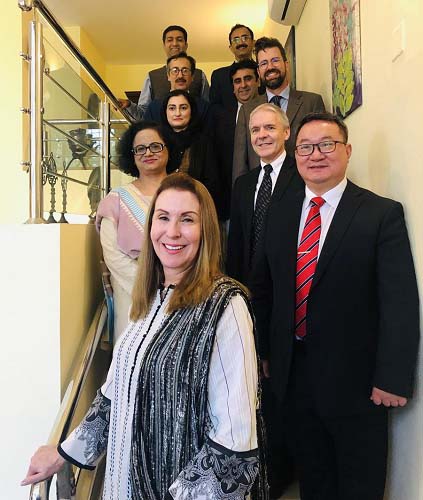US government contributes $7 million to address Covid-19 effects in Pakistan

Islamabad: – The United States government, through the United States Agency for International Development (USAID), will contribute $7 million to the Asian Development Bank’s (ADB) ongoing project to address the secondary effects of COVID-19 in Pakistan.
USAID Mission Director Julie Koenen and ADB Country Director Yong Ye attended a signing ceremony yesterday in Islamabad. ADB will use USAID’s $7 million contribution to provide cash grants to Pakistani families in need of financial assistance due to the pandemic. The grants will be distributed through the Government of Pakistan’s Ehsaas Emergency Cash program managed by the Benazir Income Support Fund Program. USAID’s funds also will provide technical and administrative support to ensure effectiveness, accountability, and transparency for the program beneficiaries.

Speaking at the ceremony, USAID Mission Director Koenen said, “Fighting this pandemic will take significant resources and an urgent, collective effort among governments, civil society, the private sector, philanthropists, multilateral organizations, and other international partners.” She further added, “This contribution to ADB will support the Government of Pakistan’s efforts to implement the Ehsaas Program through the provision of direct cash grants to underprivileged Pakistani families affected by closures and work stoppages during the COVID-19 pandemic.”
The $7 million contribution to the ADB is part of an overall U.S. commitment to assist countries affected by the ongoing COVID-19 pandemic. The United States has delivered more than $63 million in COVID-19 assistance through our partnership with the Pakistani government. Since the start of the pandemic, the United States has worked together with Pakistan to improve infection prevention and control, enhance patient care, expand laboratory testing, and support frontline healthcare workers.





